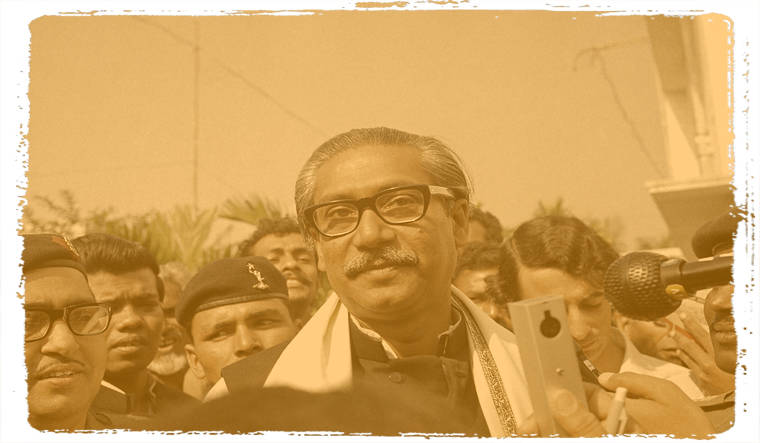On August 15, 1975, Bangladesh's Father of the Nation 'Bangabandhu' Sheikh Mujibur Rahman, along with most of his family members, was assassinated in a coup on the post-independence government. The plot was to overthrow the secular administration of the renowned freedom fighter to replace it with an Islamist dictatorship. Bangabandhu's elder daughter and incumbent Prime Minister Sheikh Hasina and younger daughter Sheikh Rehana survived as they were on a visit to the then West Germany at the time.
Now, nearly nearly four-and-a-half decades after the massacre, the only remaining fugitive involved in the strike, Abdul Majed, was hanged at 12.01am (local time). Inspector General of Prisons Brigadier General A.K.M. Mostafa Kamal Pasha, at a media briefing in front of the jail, said that the body would now be handed over to the family members for burial. A number of people gathered in front of the jail at the midnight, defying COVID-19 restrictions.
The assassins of Bangabandhu included the key mastermind of the coup ex-lieutenant colonel Abdur Rashid. Interpol issued red alert against the absconders believed to be hiding in several countries, including Pakistan. Bangladesh confirmed two cases where two convicts took refuge in the United States and Canada. Dhaka said it was trying to extradite them, but Canada declined to entertain the request citing provisions of the country's laws.
According to prosecution lawyers, Majed had only recently returned to Bangladesh. They claimed that he was living secretly in Kolkata for the past 23 years. He is believed to been in India for over two decades following the return of the Awami League (Sheikh Hasina's party) to power in 1996, which opened the path towards the trial of the killers of Bangabandhu.
After the assassination, Majed was rehabilitated in civil service during the subsequent regime of former military dictator-turned-politician Ziaur Rahman as an ex-cadre official and posted as the director of National Savings Department. He later fled the country while serving in the finance ministry along with other 1975 coup plotters as the 1996 general elections brought Awami League back to power which vowed to expose to justice Bangabandhu killers.
Home Minister Kamal said the "self-confessed killer" was not only involved in Bangabandhu's assassination but also took part in the subsequent killing of four national leaders in high security Dhaka Central Jail on November 3, 1975.
Twelve ex-military officers were sentenced to death for the crime. Five were hanged at Dhaka Central Jail on January 28, 2010, after protracted legal procedure. The trial process began in 1996 when an indemnity law was scrapped as it was protecting the assassins.
The hanged lieutenant colonels were Syed Farooq Rahman, Sultan Shahriar Rashid Khan, A.K.M. Mohiuddin Ahmed and Mohiuddin Ahmed and sacked Major Bazlul Huda, while sacked Colonel Rashed Pasha died of natural causes in Zimbabwe while on the run. Farooq Rahman, Shahriar Rashid Khan, Mohiuddin Ahmed of the Artillery faced trial in the judge's court in person. Huda was extradited from Thailand and Lancer Mohiuddin was sent back from the United States, after the then district judge Golam Rasul delivered the judgment.



